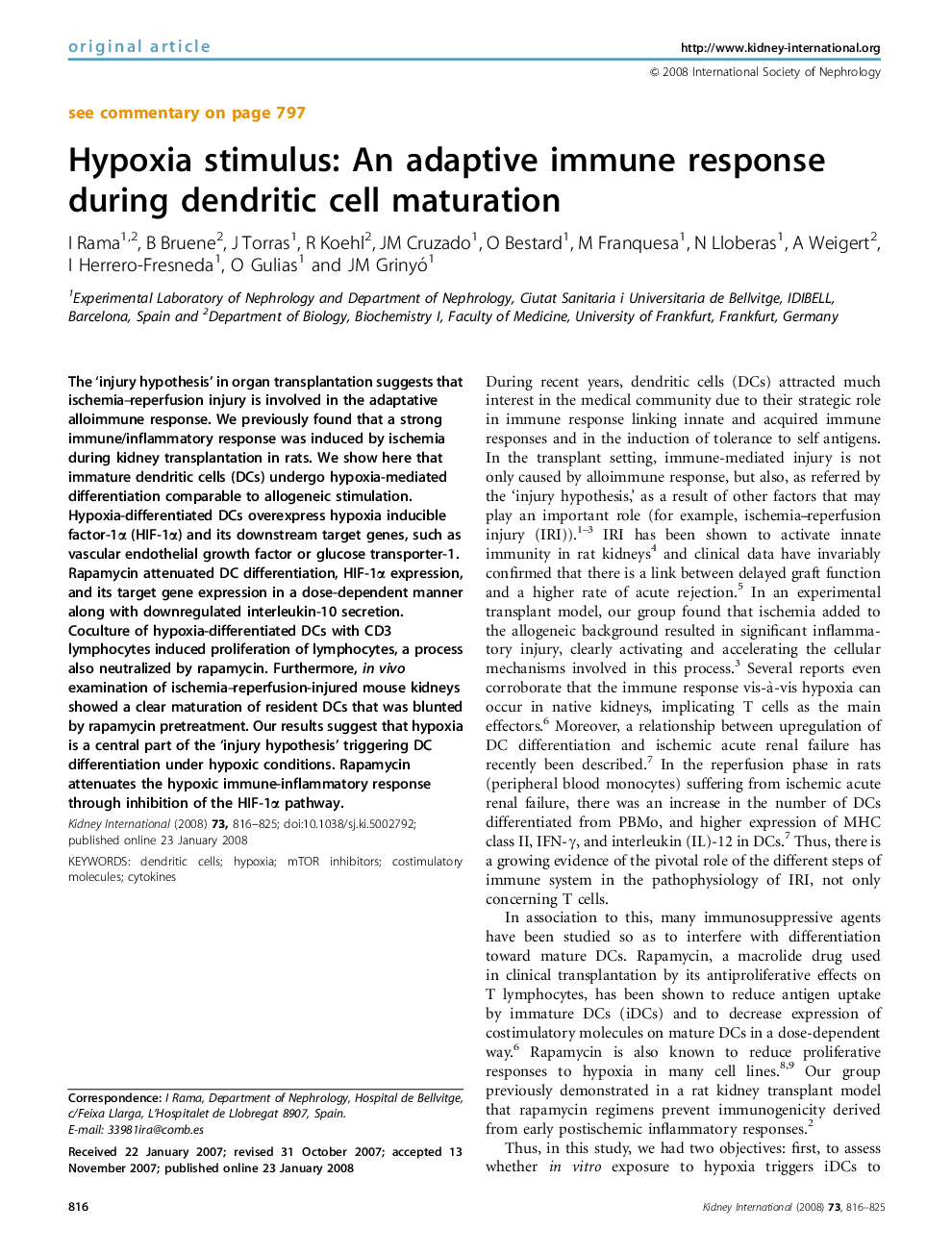| Article ID | Journal | Published Year | Pages | File Type |
|---|---|---|---|---|
| 3886635 | Kidney International | 2008 | 10 Pages |
The ‘injury hypothesis’ in organ transplantation suggests that ischemia–reperfusion injury is involved in the adaptative alloimmune response. We previously found that a strong immune/inflammatory response was induced by ischemia during kidney transplantation in rats. We show here that immature dendritic cells (DCs) undergo hypoxia-mediated differentiation comparable to allogeneic stimulation. Hypoxia-differentiated DCs overexpress hypoxia inducible factor-1α (HIF-1α) and its downstream target genes, such as vascular endothelial growth factor or glucose transporter-1. Rapamycin attenuated DC differentiation, HIF-1α expression, and its target gene expression in a dose-dependent manner along with downregulated interleukin-10 secretion. Coculture of hypoxia-differentiated DCs with CD3 lymphocytes induced proliferation of lymphocytes, a process also neutralized by rapamycin. Furthermore, in vivo examination of ischemia–reperfusion-injured mouse kidneys showed a clear maturation of resident DCs that was blunted by rapamycin pretreatment. Our results suggest that hypoxia is a central part of the ‘injury hypothesis’ triggering DC differentiation under hypoxic conditions. Rapamycin attenuates the hypoxic immune-inflammatory response through inhibition of the HIF-1α pathway.
